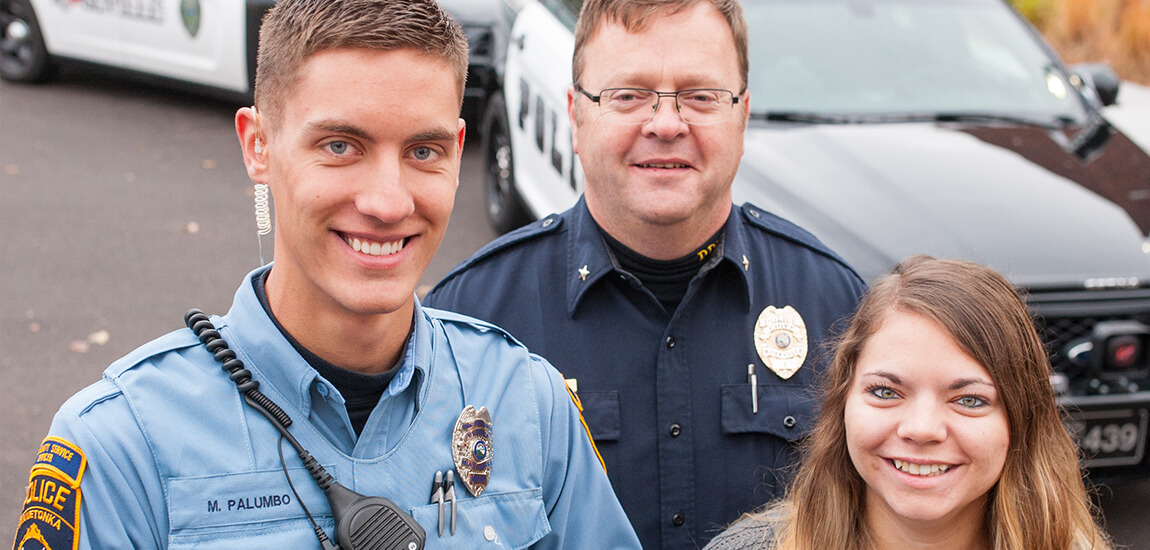The criminal justice minor provides a background in criminology, corrections, and relevant legal issues. You'll gain practical knowledge of law enforcement and psychology by examining the policies, principles, and social dynamics that shape the system of law.
Criminal justice minor may be the right degree for you if you
- have a passion for serving the public
- desire to understand the minds of criminals
- want a career working in law enforcement
- have an interest in law
Why study criminal justice at Northwestern?
For those considering working within or alongside law enforcement, this minor could help prepare you through classroom learning and networking with instructors who are current and former practitioners in the field. At Northwestern, you’ll approach law enforcement and criminal justice with a heart of ministry. Our small classes allow our faculty to encourage you to grow in your faith while you minister to others.
What will I learn?
You will learn to analyze and develop critical thinking skills and an appreciation for the law.
CRJ 3226
Corrections
An examination of the historical development, theories and institutions of punishment, rehabilitation and social control. Special attention is given to jails and prisons, probation and parole and institutional and community corrections in the United States. Special attention is given to law enforcement, the court system, penal institutions and community corrections such as probation and parole.
CRJ 2125
Criminology
An examination of the extent and nature of crime in the United States. Attention is given to theories of crime causation and an analysis of the social processes leading to criminal behavior.
CRJ 4327
Criminal Law
An examination of the sociology of law, definitions of criminal behavior and defenses to criminal prosecution. Special attention is given to substantive law and to procedural law, such as constitutional issues surrounding arrest through incarceration.
CRJ 3228
Deviance
An examination of the etiology of criminal behavior, with an emphasis on addictions and chemical abuse and how these relate to rehabilitation versus social control. Attention is also given to ways in which social inequality contributes to criminal behavior and its impact on the criminal justice system.

Still have questions about this program or how to apply?
Our team is ready with answers!
Discover the School of Education & Behavioral Sciences
Professors at Northwestern are focused on their students first. Our faculty include experts in their respective fields who want to help you grow in your faith while you earn your degree.



